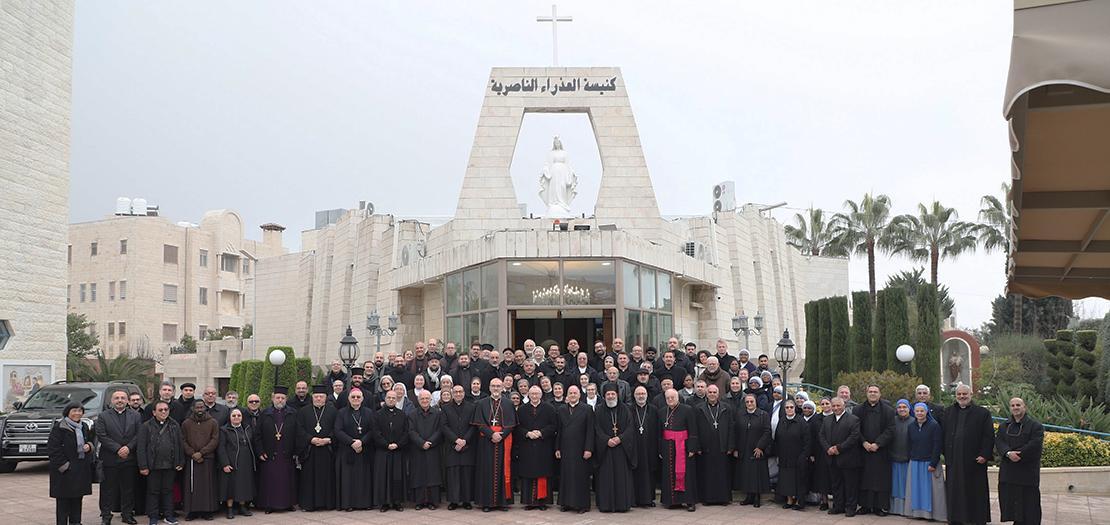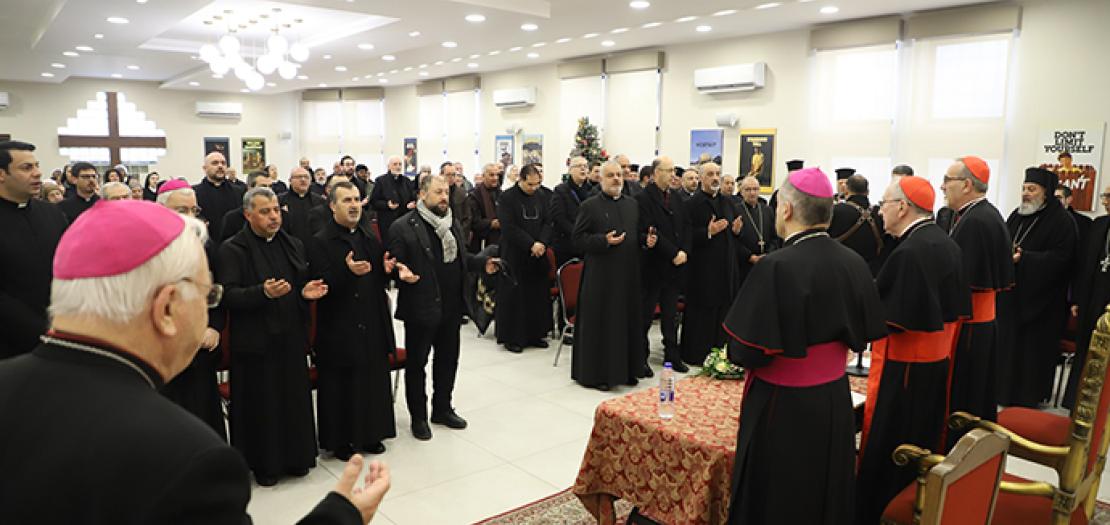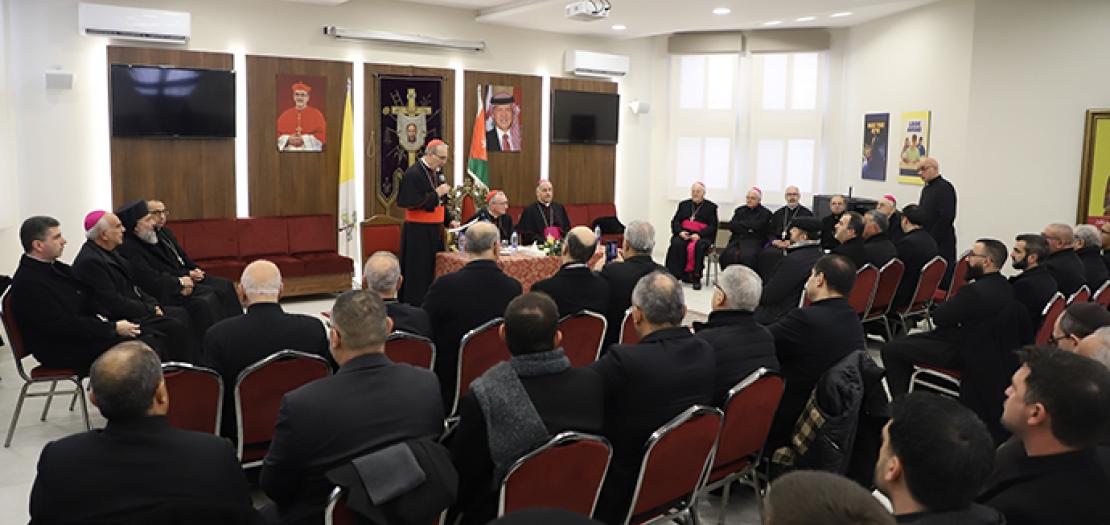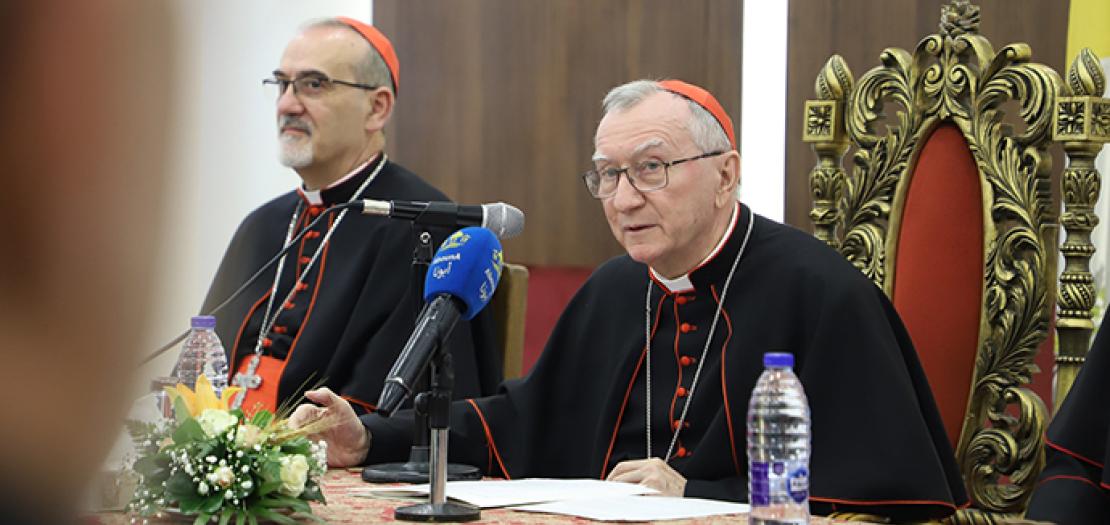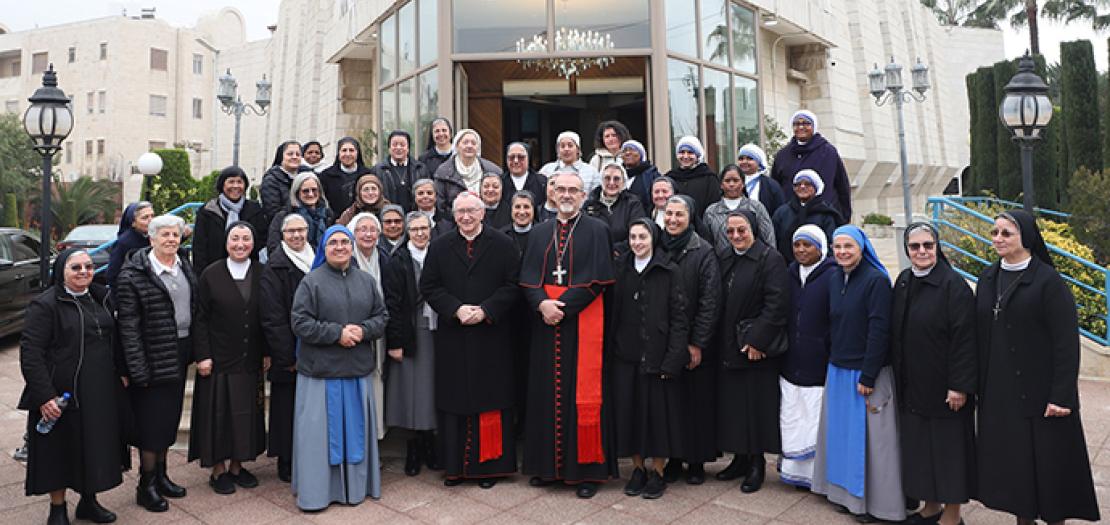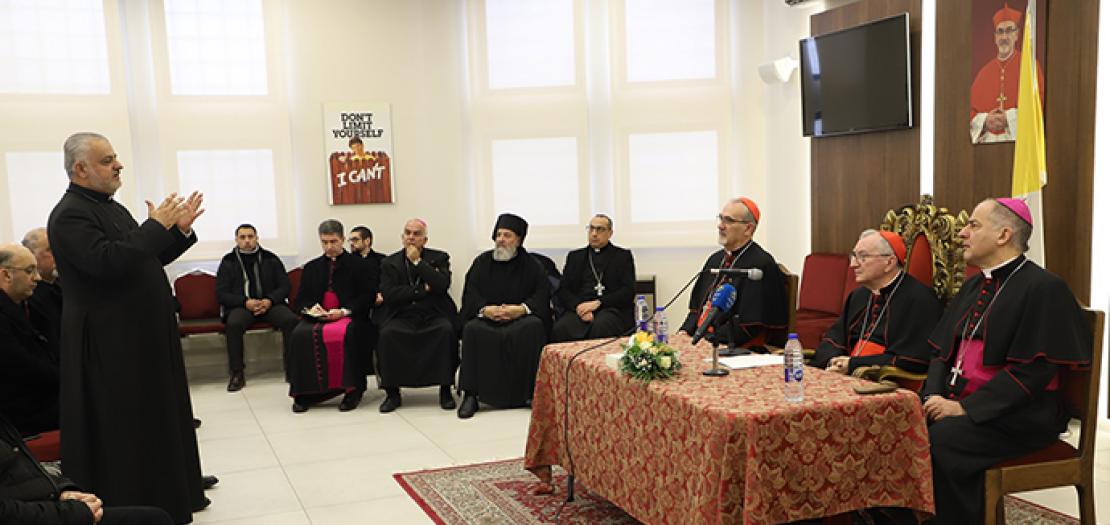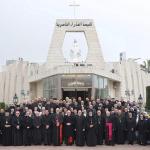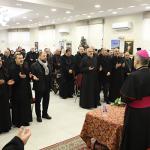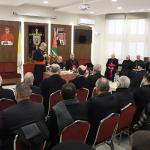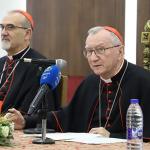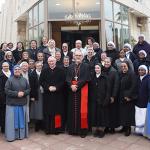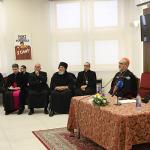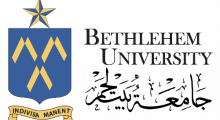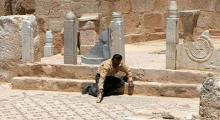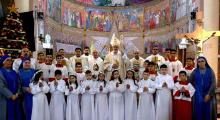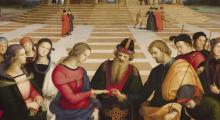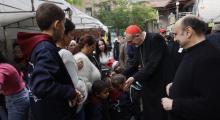Issued by the Catholic Center for Studies and Media - Jordan. Editor-in-chief Fr. Rif'at Bader - موقع أبونا abouna.org
On the second day of his visit to Jordan, namely January 11, 2025, Vatican Secretary of State Cardinal Pietro Parolin met with the Catholic clergy working in the Kingdom where he expressed his gratitude for the contribution they have been undertaking in serving the universal Church, and called on them to address three challenges, namely Christian education, Catholic schools, and emigration.
At the outset of the meeting, which took place at the hall of the Church of Our Lady of Nazareth, in Sweifieh-Amman, Latin Patriarch of Jerusalem His Beatitude Cardinal Pierbattista Pizzaballa delivered a welcoming address during which he indicated that the Catholic Church--represented today in this hall--has several churches, religious congregations, schools, universities, hospitals, and charity associations. He also drew attention to the importance of the spiritual, cultural and humanitarian work carried out by priests and nuns in various parts of dear Jordan.
In his address, Cardinal Parolin conveyed "the heartfelt greetings of Pope Francis", and expressed his thanks "for the great service provided by the clergy in the Kingdom, especially in preaching, administering the sacraments, pastoral service, education, and healthcare," noting that the last two points are in particular designed for serving the entire society, while contributing to a great extent to the distinctive Jordanian model of common living among followers of religions. He said, "Jordan plays a prominent role in this region".
The Holy See Secretary of State expressed his gratitude for the contribution made by the Jordanian clergy to the service of the universal Church, namely a bishop in Djibouti, an apostolic nuncio, a student in the Pontifical (diplomatic) Academy, a priest in the Dicastery of Interreligious Dialogue, and a priest from the Latin Patriarchate working in the Holy See Secretariat of State. He said "this generosity is an appreciation to the Church, and a reinforcement of awareness of our unity in one faith and one mission."
Cardinal Parolin reiterated that "his visit to Jordan as a papal legate is an affirmation of the closeness of His Holiness Pope Francis, and the Holy See in general, to Arab communities throughout the Middle East." Faced with the fact that some of the attendees have come from neighboring countries during these months of war, the Cardinal said that the Pope had “spoken about your concerns,” noting the important role played by the clergy and religious congregations in conveying “His Holiness’ message to the faithful, as well as informing them of our continued support during the difficult situation they are going through.”
Cardinal Parolin noted that due to the Holy Father’s desire to support Christian communities in a more assiduous way, he has recently appointed an auxiliary bishop for the Latin Patriarchate and a patriarchal vicar in Amman. He continued that “efforts are being made for greater unity” in the Greek Melkite Church, which are “signs of progress being made to attain greater stability and to help support pastoral activities."
Cardinal Parolin outlined three challenges that are of concern to the Church, namely Christian education, schools, and emigration.
He said that the world, in the first place, is changing rapidly, that the Middle East is not an exception, and that “we are witnessing a cultural transformation that also affects the way we live our faith. The traditional forms remain useful, but they are insufficient unless accompanied by serious Christian education, especially for adults.” He expressed his conviction that “renewing faith through firm Christian education is a fundamental challenge for the Church.”
Secondly, Cardinal Parolin pointed out that “the Christian youth are particularly at risk because of their increasing exposure to secularism, especially through social media,” and that “many young people want to leave the Middle East for this reason."
In this context, he stressed the importance that the Church attaches to the Catholic schools but not being confined to instilling academic knowledge, but also by conveying human and religious values, understanding the meaning of life, the bases of sound judgment, and the general attitude of faith. He accentuated the need to make these schools places of Christian education, and to make greater use of Christian education opportunities within parishes in order to strengthen the bonds that unite young people with the Church.
Thirdly, Cardinal Parolin stressed that “the ongoing emigration of Christians from the Middle East, including Jordan, is a source of great concern” for the Church, noting that it is certainly a very complex issue, linked to both economic conditions and the feelings of insecurity.
He indicated that one possible solution might be to strive to strengthen Christian communities, where believers would feel being supported, and to devote time to visiting families and building a support network for Christian families, because family life, he said, is also facing enormous challenges.
He also pointed out that the second solution lies in renewing pastoral awareness and openness to new initiatives, while urging priests and religious congregations to maintain close contact with families, as well as to encourage them to stayin the region. He said, "To be a Christian in the Middle East is a vocation."
During the meeting--which took place in the presence of the Patriarch of Jerusalem, a number of bishops and priests from various Catholic churches in Jordan, nuns from various congregations, and deacons—a wonderful and frank dialogue took place between the guest cardinal and the participants, focusing on inter-religious dialogue in today's world and in the Middle East region in particular, in addition to the unwavering position of the Holy See for the attainment of peace, the possibility of unifying the celebrations marking the Feast of the Resurrection (Easter), and how the Holy See can support religious tourism to our country.


